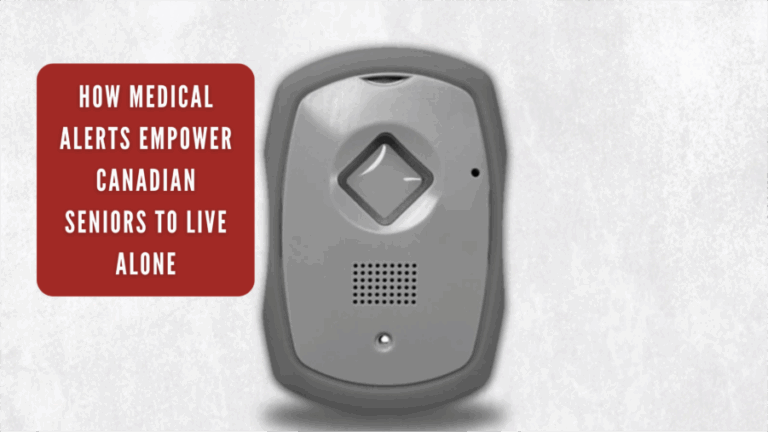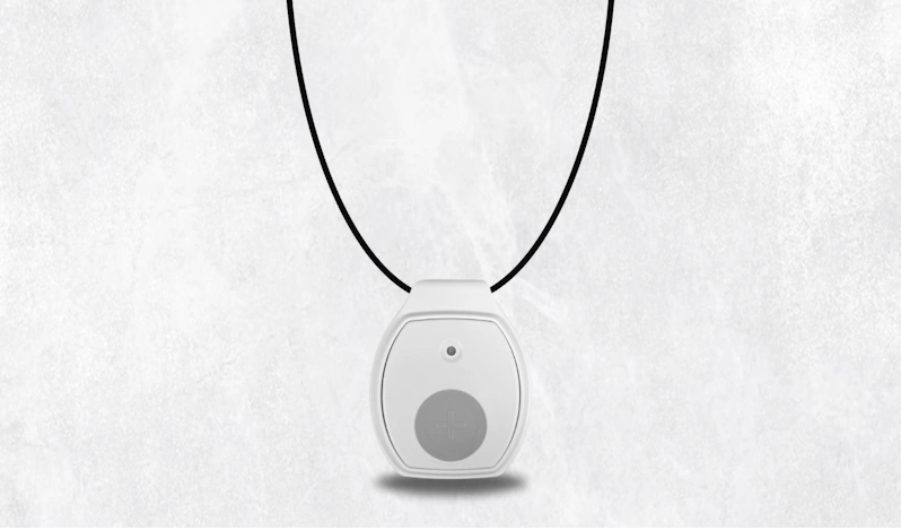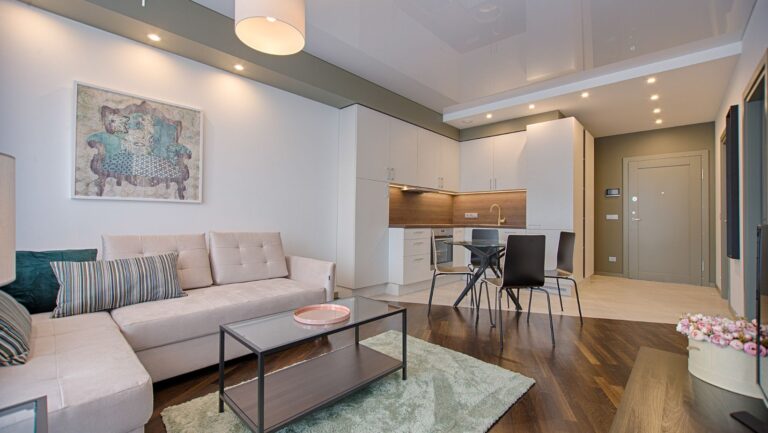To most Canadian seniors, the concept of leaving their home feels unnecessary- or even disturbing. After all, home is not just four walls; it is where the memories, routines, and comfort are.
However, when independence is more difficult to manage because of health issues related to age, families begin to be concerned:
What would happen if Mom falls when she is alone? What happens when Dad gets a health scare and he can not reach the phone?
These are reasonable fears, especially when chronic illnesses or impaired mobility are being considered.
Although empowering, living alone can become very isolating or dangerous very fast. Fortunately, technology has been developed to provide a solution that would not infringe on independence and still cater to safety.
Medical alert systems are revolutionizing how the elderly in Canada are able to remain in their homes. Not only do these devices help in times of emergency, but they also enhance their living quality, maintain their mental health, and help them and their families feel less stressed.
Following are the ways medical alerts are giving Canadian seniors the confidence to live independently without sacrificing their comfort or security.
1. Instant Access to Emergency Help—At the Push of a Button
Emergencies don’t wait for the right moment. Whether it is a fall, a heart episode, or sudden dizziness, the possibility of seeking help at any moment may be the difference between a rapid recovery and the development of long-term complications. In the case of seniors who live alone, a phone or a call for help is not always accessible in case of a crisis.
Personal medical alert Canada systems are specifically designed for those instances. With a single push of a wearable button (typically in the form of a necklace or wristband), the user is immediately linked to a trained emergency operator. These systems are available 24/7 so that help is present at all times, whether it is day or night.
There are even higher-end models that have automatic fall detection. Should the system detect that there is a sudden instance of a drop and further inactivity, help could be automatically called in, especially in situations where the intended user has lost consciousness or cannot move.
2. Reinforced Confidence and Daily Independence
The psychological boost a medical alert system offers is one of the most empowering things about it.
Most elderly people start to give up physical activity or hobbies due to fear of falling, becoming dizzy or not being able to call for help. Such fear may cause isolation, depression, and quicker health deterioration.
Medical alerts give a cushion of security that regains confidence. Be it watering plants, taking a walk around the block, or just taking a shower (where falls often occur), the realization that there is someone there to help at the push of a button gives seniors the independence to move about and live their lives more freely. Independence can maintain dignity and can enable them to remain in control of their lifestyle.
3. A Reliable Safety Net for Chronic Health Conditions
Managing chronic illnesses while living alone can be stressful. Conditions like diabetes, high blood pressure, arthritis, or heart disease require consistent care, medication, and lifestyle monitoring. A single missed dose or a sudden spike in symptoms could result in a medical emergency.
Medical alert systems step in as silent partners in health management. Many devices today are equipped with features like medication reminders, wellness check-ins, or even basic health tracking. These tools ensure that seniors not only get help in emergencies but are also encouraged to stay consistent with their care routines.
4. Peace of Mind for Families—Without Hovering
Families naturally worry. Whether their aging loved one is living two blocks away or across the country, the stress of not knowing if they’re okay can be constant. However, calling multiple times a day or showing up unannounced often makes seniors feel like their autonomy is being questioned.
Medical alert systems offer a respectful middle ground. Many providers offer caregiver dashboards, mobile apps, or alert systems that notify selected family members if the alert button is pressed or if a fall is detected. This keeps families informed and connected without being intrusive.
5. Customizable Solutions to Fit Every Lifestyle and Budget
Not all seniors live the same lifestyle—some enjoy quiet days at home, while others are active in their communities or travel frequently. Medical alert systems in Canada now come in many formats to suit these varied needs.
- In-home systems are ideal for seniors who primarily stay at home. These work with a base station and a wearable button, connecting to emergency services through a landline or cellular signal.
- Mobile systems come with built-in GPS, allowing users to take the device with them anywhere. This is perfect for seniors who go for walks, travel, or live in more isolated areas.
- Wearables with extra features such as voice-activated help, waterproof design, or even fitness tracking offer added layers of protection and usability.
Pricing has also become more flexible, with subscription-based models, no long-term contracts, and options that cater to various income levels. This makes it easier for seniors and families to choose a solution that fits both their needs and their budget.
Final Thoughts
Medical alert systems are more than emergency buttons—they are tools of empowerment.
They allow seniors across Canada to maintain their independence, live confidently in their own homes, and continue enjoying life on their terms. For families, they offer peace of mind and a sense of connection that bridges physical distance.
In a country where the senior population continues to grow, and where aging in place is becoming more common, having a reliable, user-friendly medical alert system isn’t just helpful—it’s essential.







